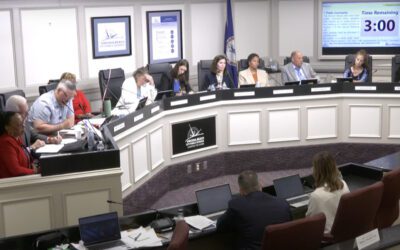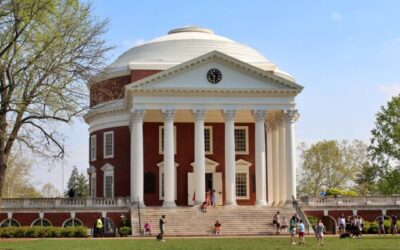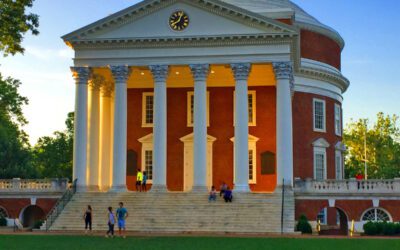
Contributed photos of Amber Gillen (left) and Megan Scott
Growing up in Bassett, Megan Scott was surrounded by a family of teachers. When she graduated from Bassett High School, attending Ferrum College to study elementary education felt right to her. But with Virginia’s teacher deficit demanding more from teachers than ever before, combined with the financial investments that come from studying to be a teacher, Scott—like so many others who want to work in education—had to look for ways to make the choice make sense.
“One of the obstacles in becoming a teacher has been the money that is involved,” she said. “Not only paying for college, but also paying for all the necessary tests we must take and pay for out of pocket in order to get our teaching license. This scholarship is one of many that I have worked hard to receive to help me pay for college, to make becoming a teacher possible.”
She’s talking about the Virginia Teaching Scholarship Loan (VTSLP), which is funded by the Virginia General Assembly. Good for up to $10,000 per student, it’s an incentive for people open to teaching in select “critical shortage” areas after graduation. To be eligible, students must be enrolled in an approved teacher education program, maintain a cumulative grade point average of at least 2.7, and be nominated by the college or university they attend.
“When I become a teacher I hope to have a positive and supportive impact on my students,” Scott said. “Our students will come from all different lifestyles and cultures and it is my job to give them a constant safe place to come, learn, and grow where they feel welcome.”
Like Scott, fellow Ferrum College student Amber Gillen is on track to become a teacher in Virginia. A graduate of Prince Edward County High School, Gillem is double-majoring in Secondary Education and Agricultural Sciences—and she said the VTSLP is helping her choose to work in education.
“I’m excited to go into teaching, but finances are always a challenge so knowing that this scholarship is going to limit my overall academic debt is going to allow me to stress less on my finances and focus more on my teaching ability,” Gillem said.
Gillen was motivated to study education after having impactful teachers in high school. She said she hopes she’ll inspire her future students in the same ways her teachers empowered her.
“I hope to be a helpful resource for students so that I can help them in school, but also help prepare them for the real world—especially in the high school setting,” Gillen said. “I want my future students to know that if they are willing to put in the hard work, I will go over and beyond to help make sure they succeed and meet their desired goals.”
Financial Aid for Virginia’s Future Teachers
When’s the last time your profession was understaffed by thousands? In Virginia’s public schools, there were more than 3,500 unfilled Virginia teaching positions in the 2022-23 school year—and nearly half of those openings were for pre-K through sixth grade educators.
While it’s difficult to come to terms with those numbers, there is hope on the horizon: A multitude of financial aid options exist for Virginians who want to become teachers.
In addition to the VTSLP, there’s also the TEACH Grant, short for Teacher Education Assistance for College and Higher Education, which provides up to $4,000. The federal grant requires that eligible awardees complete a teaching service obligation. Otherwise, the “grant” becomes a loan that the individual pays back.
Special education is one of the areas experiencing the most need for teachers. In fact, there were more than 700 openings in the 2022-23 school year for special education professionals in Virginia classrooms. There are a handful of financial aid options available especially for individuals seeking positions in special education.
The Virginia Consortium for Teacher Training in Early Childhood Special Education consists of a partnership among Radford University, Lynchburg College, and the Virginia Department of Education (VDOE). The funds primarily assist current teachers in early childhood special education (ECSE) with provisional licensure, helping them complete required courses for ECSE endorsement.
For current special education teachers seeking a Ph.D. in special education—which would allow them to teach tomorrow’s teachers—the four-year SEEDS program at the University of Virginia offers up to $38,000 in an annual stipend, free tuition, travel support, and health benefits, thanks to federal funding from the Office of Special Education Programs.
There are also funds available through other sources, like the Virginia Tuition Assistance Grant Program (VTAG). This program isn’t just for prospective teachers, but education students may certainly apply. The grant assists Virginia residents who attend accredited private, nonprofit colleges and universities in the commonwealth. While many majors and programs are eligible under this grant, religious training and theological education are not.
To learn more about financial aid options throughout the commonwealth, visit the State Council of Higher Education for Virginia.
Support Our Cause
Thank you for taking the time to read our work. Before you go, we hope you'll consider supporting our values-driven journalism, which has always strived to make clear what's really at stake for Virginians and our future.
Since day one, our goal here at Dogwood has always been to empower people across the commonwealth with fact-based news and information. We believe that when people are armed with knowledge about what's happening in their local, state, and federal governments—including who is working on their behalf and who is actively trying to block efforts aimed at improving the daily lives of Virginia families—they will be inspired to become civically engaged.


New federal loan limits could derail Virginia students’ path to medical school
This story by Shalina Chatlani was produced by Stateline and reviewed and distributed by Stacker. Twenty-eight-year-old Michaela Bonner has been...

Public school defender Ghazala Hashmi takes on right-wing radio’s Reid for lieutenant governor
Sen. Ghazala Hashmi, a mom of two daughters, is clear about the choice Virginians face when they go to the polls this November. Do they want to...
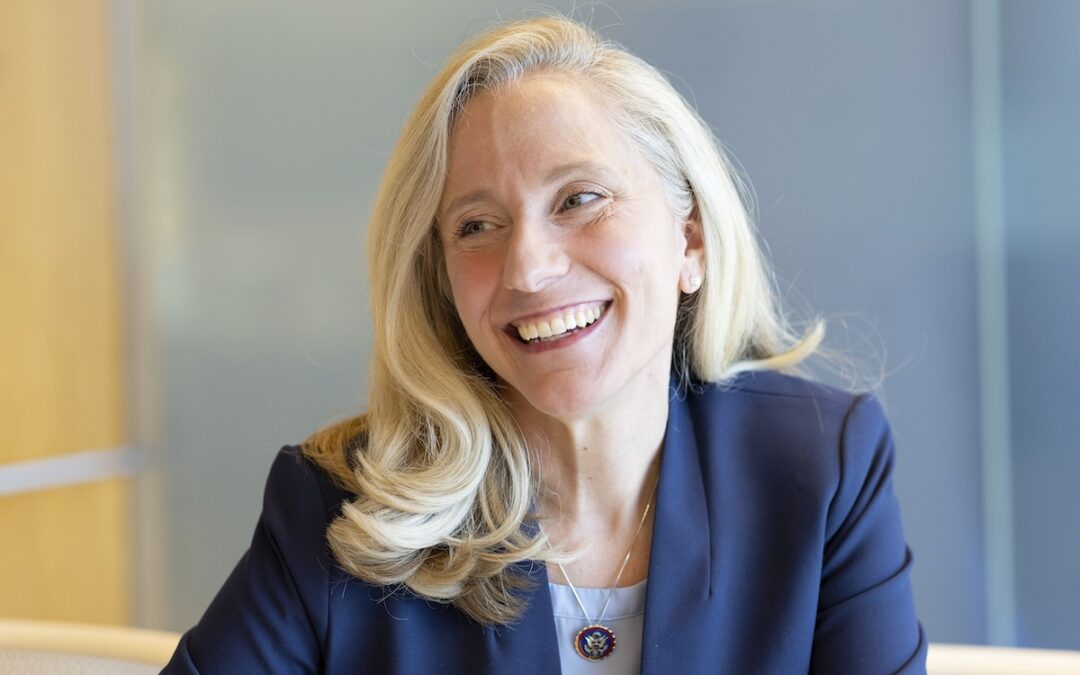
The Spanberger strategy: Can this Virginia Democrat reset the politics of public education?
This story was originally reported by Mel Leonor Barclay of The 19th. Meet Mel and read more of her reporting on gender, politics and policy. During...

Is Virginia’s #2 Republican trying to wreck your local school? We’ve got the receipts on Winsome Earle-Sears
Here are 4 instances when the Republican running for governor of Virginia has proven she’d make public schools worse. Worried your kid’s school...

Abigail Spanberger: ‘It’s time to get culture wars out of our schools and let teachers teach’
Abigail Spanberger, the Democratic nominee for governor of Virginia, has a message for all Virginia parents like herself: She will be focused on...
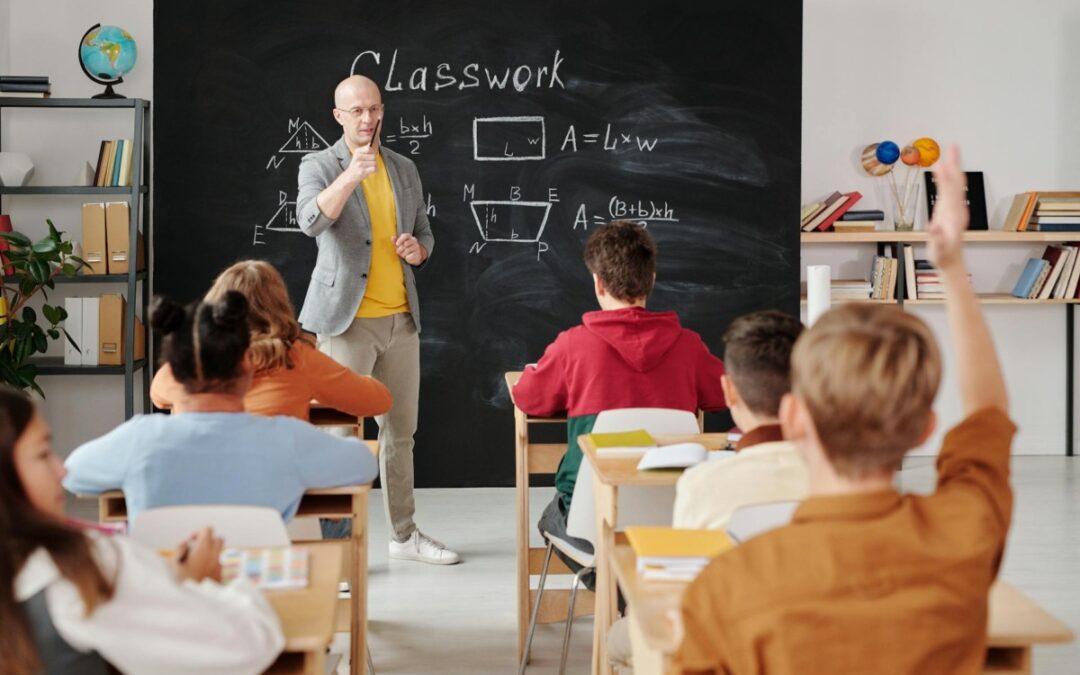
UVA researcher breaks down the myths behind math anxiety
Only a small percentage of people are inherently bad at math, says Professor Tanya Evans. But many struggle with anxiety due to a lack of math...



